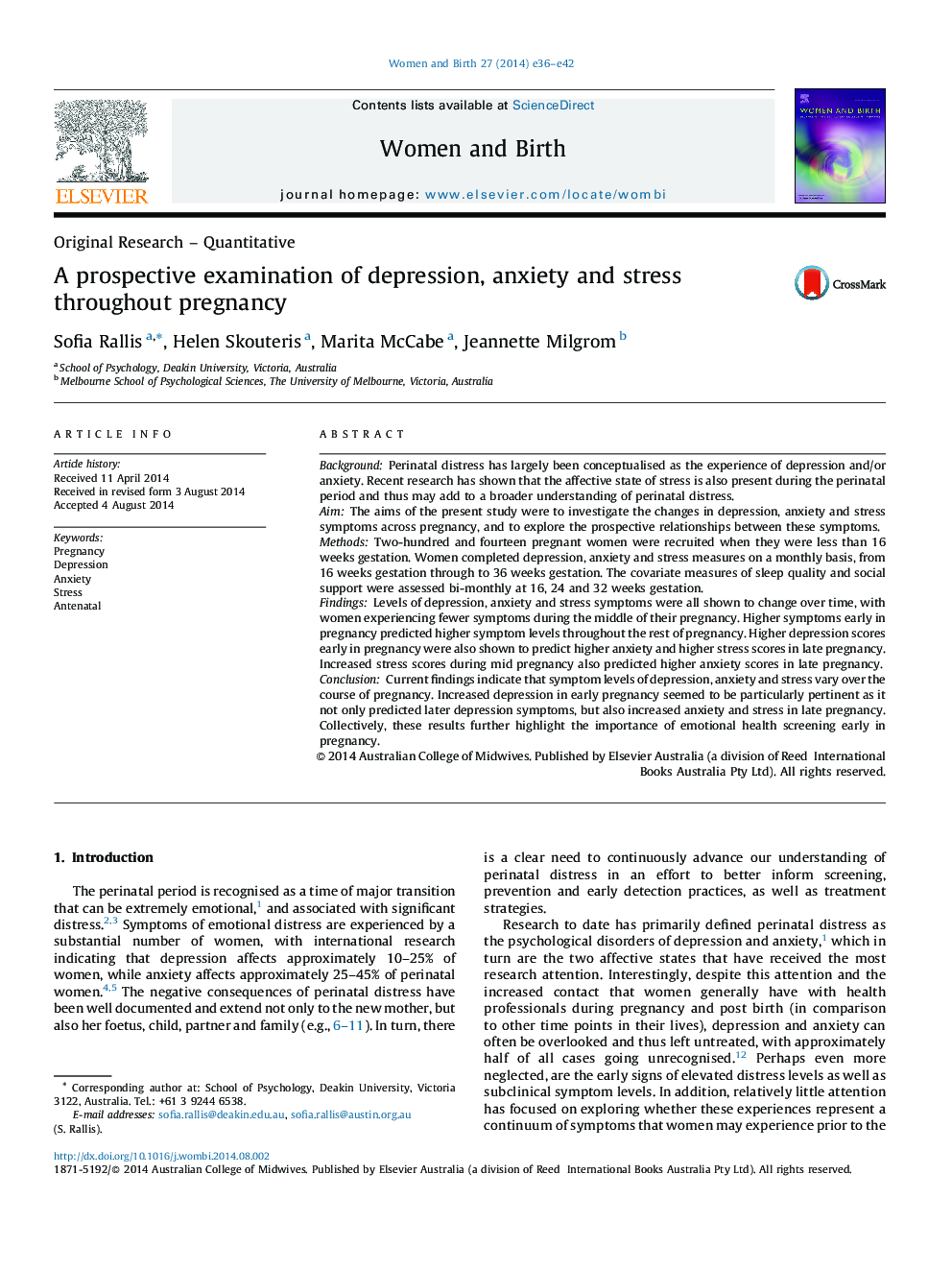| Article ID | Journal | Published Year | Pages | File Type |
|---|---|---|---|---|
| 2636009 | Women and Birth | 2014 | 7 Pages |
BackgroundPerinatal distress has largely been conceptualised as the experience of depression and/or anxiety. Recent research has shown that the affective state of stress is also present during the perinatal period and thus may add to a broader understanding of perinatal distress.AimThe aims of the present study were to investigate the changes in depression, anxiety and stress symptoms across pregnancy, and to explore the prospective relationships between these symptoms.MethodsTwo-hundred and fourteen pregnant women were recruited when they were less than 16 weeks gestation. Women completed depression, anxiety and stress measures on a monthly basis, from 16 weeks gestation through to 36 weeks gestation. The covariate measures of sleep quality and social support were assessed bi-monthly at 16, 24 and 32 weeks gestation.FindingsLevels of depression, anxiety and stress symptoms were all shown to change over time, with women experiencing fewer symptoms during the middle of their pregnancy. Higher symptoms early in pregnancy predicted higher symptom levels throughout the rest of pregnancy. Higher depression scores early in pregnancy were also shown to predict higher anxiety and higher stress scores in late pregnancy. Increased stress scores during mid pregnancy also predicted higher anxiety scores in late pregnancy.ConclusionCurrent findings indicate that symptom levels of depression, anxiety and stress vary over the course of pregnancy. Increased depression in early pregnancy seemed to be particularly pertinent as it not only predicted later depression symptoms, but also increased anxiety and stress in late pregnancy. Collectively, these results further highlight the importance of emotional health screening early in pregnancy.
